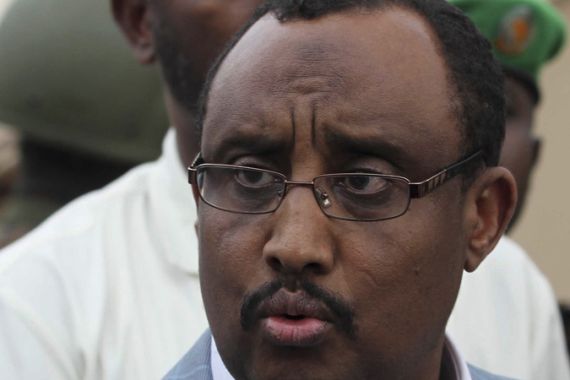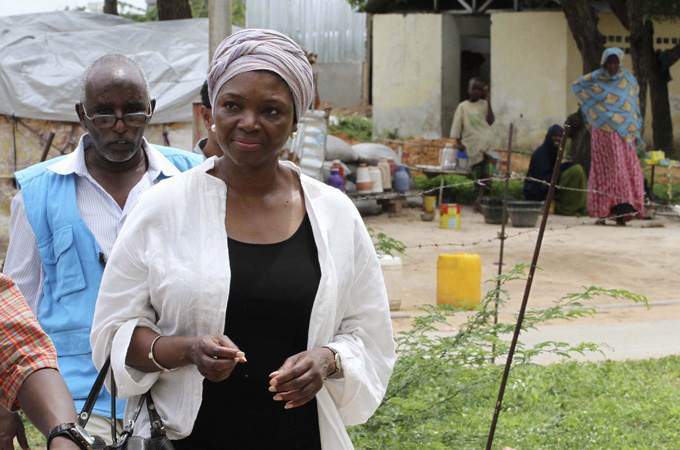Somalia wants new force to guard aid convoys
Proposed force will guard vital food supplies after state troops looted supplies meant for famine victims.

Somalia has called for the creation of a new force to protect food aid convoys and camps in the famine-hit country after declaring a state of emergency in parts of Mogadishu.
Al-Shabab fighters mostly retreated from the capital last weekend but the threat of guerrilla-style attacks such as suicide bombings remains despite their battlefield defeat.
The government and a 9,000-strong African peacekeeping force admit they do not control all of the capital even after the rebel withdrawal, placing thousands of Somali refugees who are streaming into Mogadishu searching for food in danger.
The pullout by al-Shabab has raised hopes humanitarian groups will be able to step up aid deliveries after years of obstruction by the fighters.
Abdiweli Mohamed Ali, the prime minister of Somalia’s transitional government, speaking to Al Jazeera had a defiant message for the group: “Bring it on. We are ready, what ever tactics they want to use, we are ready for them.”
Ali also held a joint news conference with Valerie Amos, the recently appointed UN emergency relief coordinator.
“We met today with Valerie Amos … we have discussed the current humanitarian situation in Somalia and the best way that we can assist with humanitarian aid to the people,” Ali said.
“We have also raised the issue of creating a special humanitarian force, which has dual purposes. First to secure and protect the food aid convoy, and to protect the camps and stabilise the city and fight banditry and looting.”
Ali did not say who would make up such a force.
Internal looting
This month, government troops fired shots and fought among themselves as some looted food meant for famine victims provided by the World Food Programme at the Badbaado camp near the city.
|
|
Following the meeting between Ali and Amos, Somali President Sheikh Sharif Ahmed issued a decree declaring a state of emergency in areas abandoned by the rebels in Mogadishu.
It bans clan militias from the areas and gives the military court jurisdiction to deal with crimes committed there.
Amos called for improved security for food convoys, and said she was shocked at the conditions after touring a hospital and meeting Somalis who had walked long distances to find food.
“The prime minister and I discussed the importance of security to ensure that humanitarian operations can continue… I am confident that with an improvement of security we will be able to do more to help those people who are desperately in need,” she said.
“I was shocked to see some of the children at the hospital that I visited, and I can’t imagine what it feels like to be a parent of these children suffering that level of malnutrition.”
A cholera epidemic is spreading in the country, especially among people driven to the capital by a lack of food and water.
About 3.6 million people in Somalia are at risk of starvation. Some 12.4 million people in the Horn of Africa – including Somalia, Kenya, Ethiopia and Djibouti – are affected by the worst drought in decades, according to the United Nations.
Tens of thousands of people have already died.
